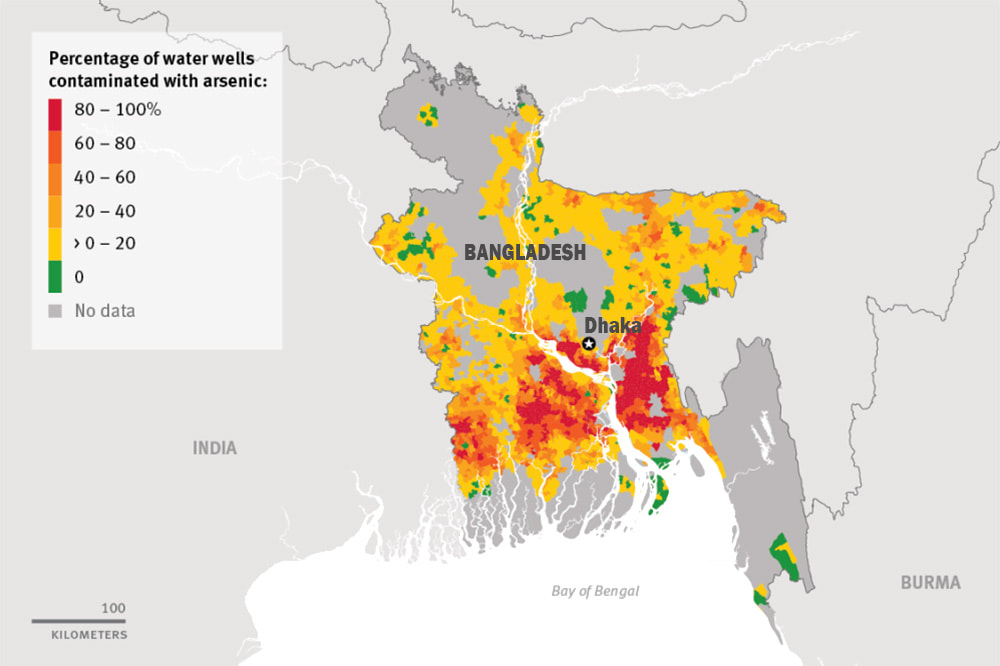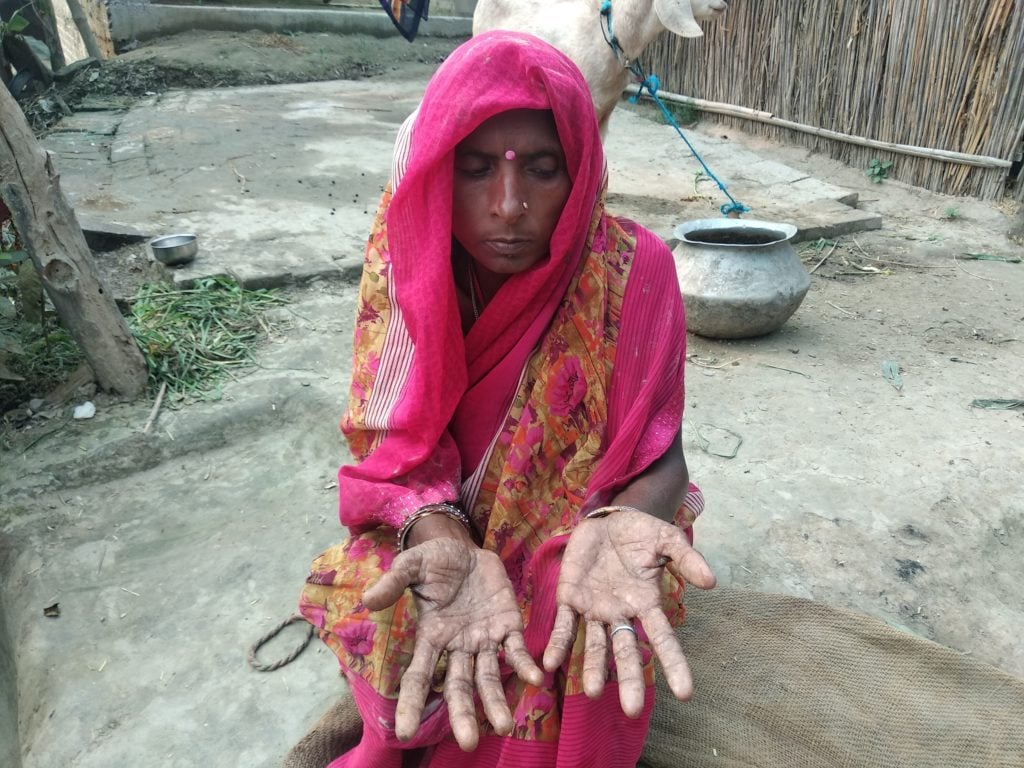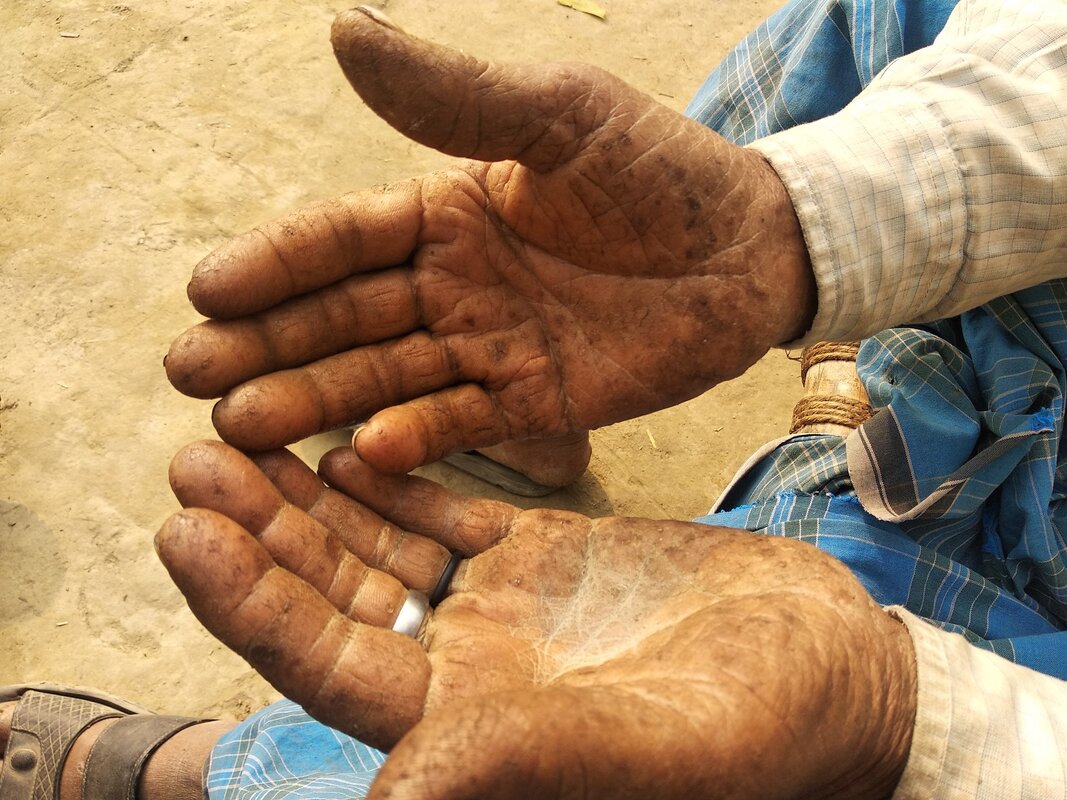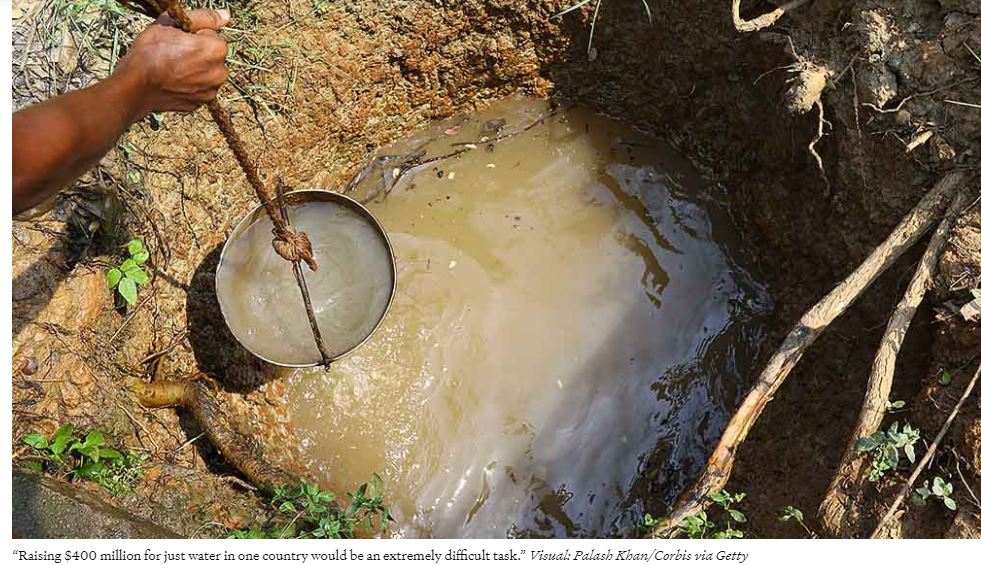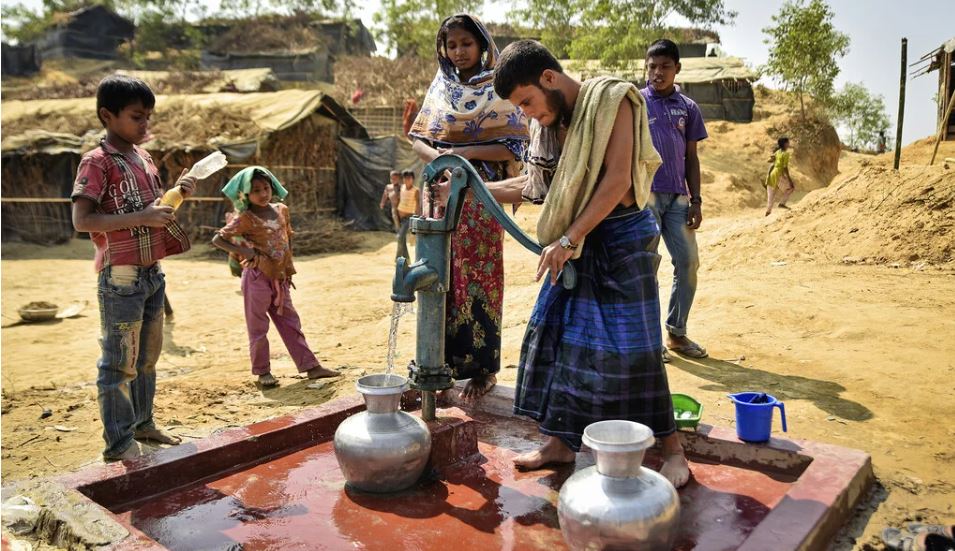26.01.2024
All of Bangladesh Is Drinking Water Containing Carcinogenic Arsenic
Nearly half of the water that Bangladeshis are drinking contains dangerously high levels of arsenic, a new study has revealed. A team of scientists found that 49 per cent of the water, which an overwhelming majority of the population depends on, contains unsafe limits of the carcinogenic contaminant. The discovery highlights a looming public health crisis in the South Asian country, which routinely faces heavy flooding and is one of the most vulnerable to the impacts of a spiralling climate crisis. The increased levels of arsenic were directly linked to rising sea levels and more severe seasonal flooding, according to the study. When saltwater from the ocean mixes with freshwater, it causes arsenic to be released from sediments. The researchers collected water samples from wells across Bangladesh to test for oxygen concentration, pH, and temperature to understand the dynamics behind the arsenic release. They found that approximately 49 per cent of Bangladesh’s groundwater had arsenic concentrations exceeding the 10 micrograms per litre ( μg/L) safe limit set by the World Health Organisation for drinking water. In some samples, the arsenic concentration recorded was as high as 450μg/L - exceeding the WHO guidelines by 45 times. The findings signal a public health emergency. Prolonged arsenic exposure can cause severe health issues, including cancers and vascular diseases. Over 165,000,000 people live in Bangladesh; approximately 97% of Bangladeshis drink well water.
Credit: rizingTV
Credit: rizingTV
Poverty deprives people of adequate education, health care and of life's most basic necessities- safe living conditions (including clean air and clean drinking water) and an adequate food supply. The developed (industrialized) countries today account for roughly 20 percent of the world's population but control about 80 percent of the world's wealth.
Poverty and pollution seem to operate in a vicious cycle that, so far, has been hard to break. Even in the developed nations, the gap between the rich and the poor is evident in their respective social and environmental conditions.
Poverty and pollution seem to operate in a vicious cycle that, so far, has been hard to break. Even in the developed nations, the gap between the rich and the poor is evident in their respective social and environmental conditions.

